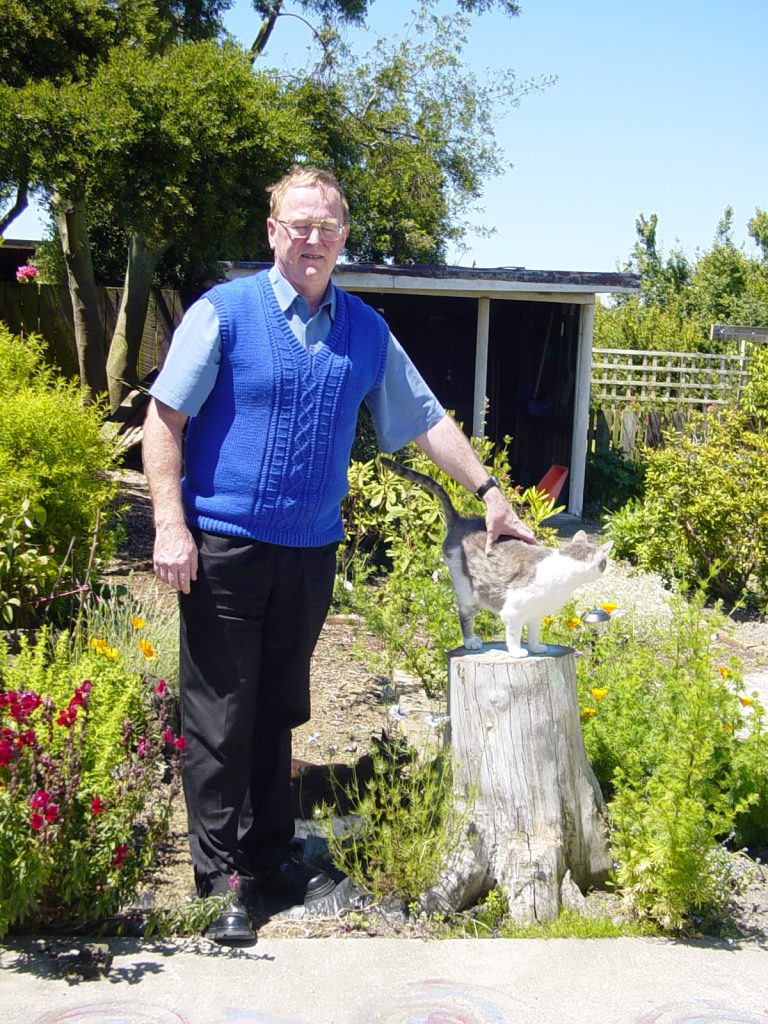Welcome to this series on Seniors. I hope you enjoy this thought-provoking and inspiring reading.
Loneliness is one of the most serious conditions an elderly person has to face. With all the research being done to find cures for cancer, loneliness ranks as a very big problem for the senior population who are widowed or left in nursing homes, with no one to visit or show them, love.
Love is our most important health attribute. Pets are one of nature’s best sources of love.

Animals of all types, especially dogs and cats, help overcome the pain of loneliness. They also show companionship and affection. Pets supply a sense of security and protection for anyone who is consistently left alone.
Pets can make you laugh and divert your mind from troubles. Several studies have shown that pets help with relaxation, lower one’s blood pressure, promote health and extend one’s life. Pets also help us unwind.
Pets supply nurturing through affectionate attention. Pets relieve stress and anxiety and anyone who bonds with a pet will confirm the value of a pet. With a pet, elderly people see themselves as worthwhile and their sense of self is restored and enhanced because the love, they give a pet is given back to them.
Pets also provide companionship, aid health, and relaxation, and offer protection and nonjudgmental acceptance and love. They provide a sense of healing; and. observational studies suggest that affection for pets is positively related to morale.

Animal visits and animal-assisted therapy have existed for many years within nursing homes and hospital settings, based on the belief that people benefit from interactions with pets. The research literature strongly supports the effects of pets on lowering blood pressure and other physiological functions.
Additional benefits of pet therapy related to cognitively impaired persons are thought to also include orientation to the present, increased verbal interactions/socialization, and tactile stimulation.
Many nursing home residents experience a decline in verbal skills. Animals can help to enhance verbal communication by offering opportunities for patients to vocalize, socialize, and reminisce.
For many elderly, nonverbal communication becomes increasingly important. People often maintain nonverbal communication skills after the loss of verbal abilities. Nonverbal acceptance and communication of animals has recognized benefits and importance.
One way that residents communicate nonverbally with animals is through sensory stimulation. Physical contact with an animal (holding, stroking, and hugging) provides sensory experiences that is difficult to replicate consistently with people.
If you want to see an elderly person bounce back from a depressive state and incorporate a rhythm and structure back into their daily lives, give them an animal. This provides a boundless measure of acceptance, adoration, attention, and unconditional love.
In one nursing home study, the presence of a residential cat resulted in notably increased motivation for social interaction among elderly residents.
There seems to also be increasing evidence that pets not only improve “quality of life” but can also improve measurable “quantity of life.” For example, research studies have reported a marked reduction in risk factors for cardiovascular disease in groups of pet owners, compared to elderly persons with no pets.
Pets may serve to buffer and normalize aging persons’ sense of social isolation. Some elderly people have no human friends in whom they confide in.
Pets are a therapeutic solution for loneliness. Not only do pets give elderly persons who have no one to love and care for them a reason to go on, but pets also give unconditional love.
Pets do not see an old person. They do not see weakness, disability, hurt, or pain. The only thing a pet sees is a person wanting to love and be loved.

2 cats and 3 strays
Having two cats and three strays in my backyard gives me much joy. Without my pets to love and stroke, I would be very sad.
Love is our most important health attribute, and pets are one of nature’s best sources of love.
For more blogs, please visit www.NicksDigitalSolutions.com and choose Nick’s blog
For E-Learning material, please visit www.NicksDigitalSolutions.com and choose the E-Learning shop (in particular, Seniors).
Nick Thorne is the founder of Nick’s Digital Solutions Limited. He lives in Levin, New Zealand.

Nick Thorne performs a cat scan
